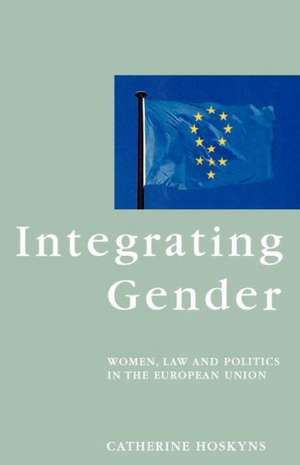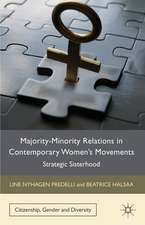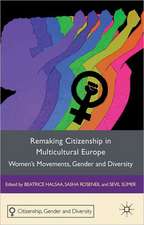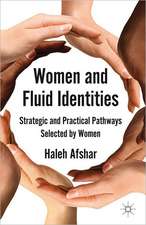Integrating Gender: Women, Law and Politics in the European Union: Questions for Feminism
Autor Catherine Hoskyns, C. Hoskyns Editat de Monica Threlfallen Limba Engleză Paperback – 31 mar 1996
Since the 1970s the European Community’s policy on women’s rights has provided a rare example of a European policy which grants social rights and engages at least to some extent with a mobilized political community. Analysis of policy implementation reveals the complex web which develops when national and transnational state activity interacts with social movements operating in different national and cultural contexts. In Integrating Gender, Catherine Hoskyns tracks these developments across the EU member states using a wide range of primary sources, including original interviews with some of the key women involved at grassroots, professional and official levels. For the first time the prism of feminism is focused on the political, legal and social history of the European Union; the resulting analysis illuminates both the politics of the Union and the reasons for its current crisis of legitimacy.
Preț: 139.24 lei
Nou
Puncte Express: 209
Preț estimativ în valută:
26.65€ • 28.93$ • 22.38£
26.65€ • 28.93$ • 22.38£
Carte disponibilă
Livrare economică 02-16 aprilie
Preluare comenzi: 021 569.72.76
Specificații
ISBN-13: 9781859840788
ISBN-10: 1859840787
Pagini: 256
Dimensiuni: 136 x 216 x 19 mm
Greutate: 0.29 kg
Editura: VERSO
Seria Questions for Feminism
Locul publicării:United Kingdom
ISBN-10: 1859840787
Pagini: 256
Dimensiuni: 136 x 216 x 19 mm
Greutate: 0.29 kg
Editura: VERSO
Seria Questions for Feminism
Locul publicării:United Kingdom
Notă biografică
Catherine Hoskyns is Professor Emerita of European Studies at Coventry University.
Recenzii
“This important book provides the first full-length study of a crucial and fascinating subject. It explores the unexpected development—within the distanced bureaucracy of the European Commission—of policies for women’s equality, and assesses the impact of women’s organisations on this development.”—Anne Phillips, Professor of Politics, London Guildhall University
















